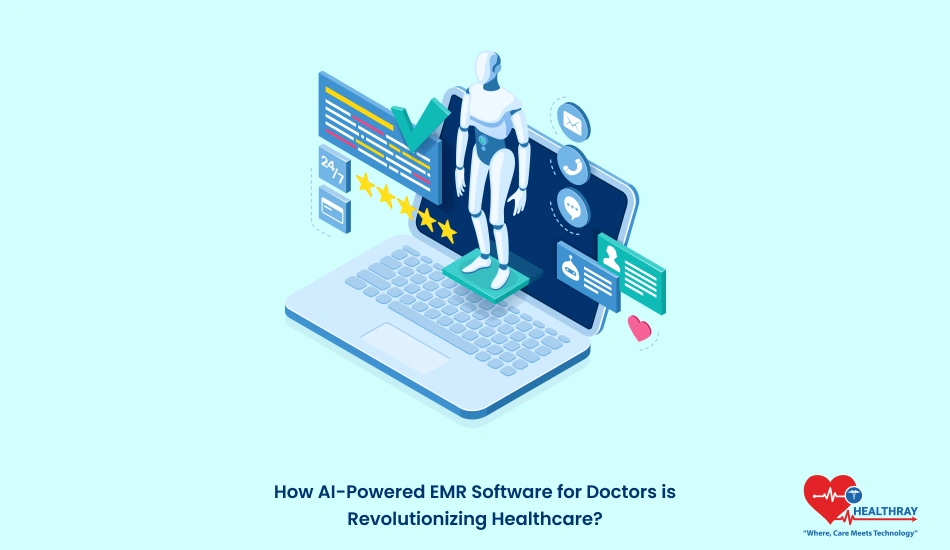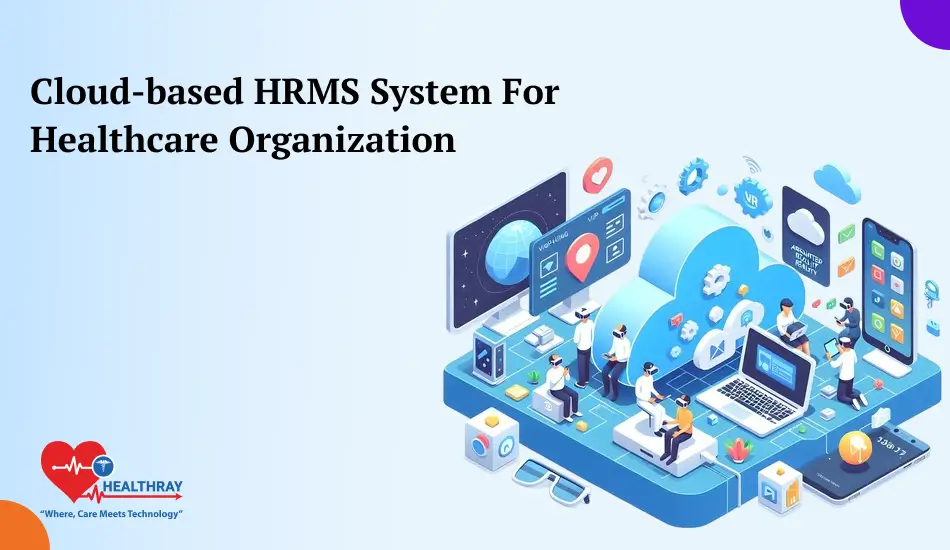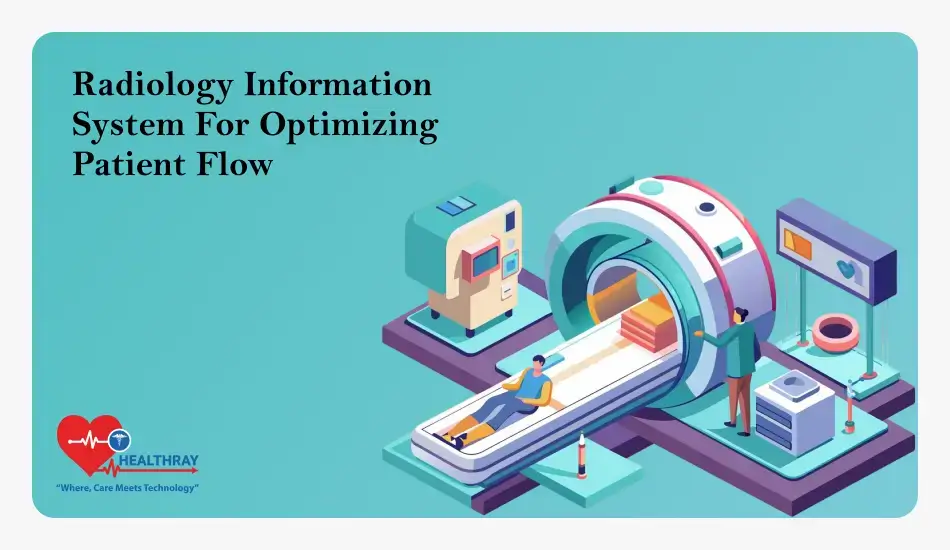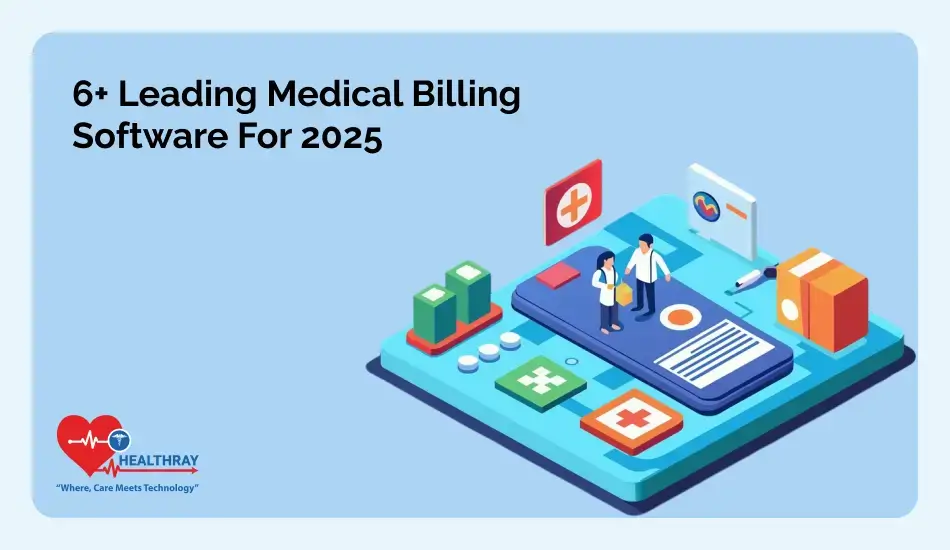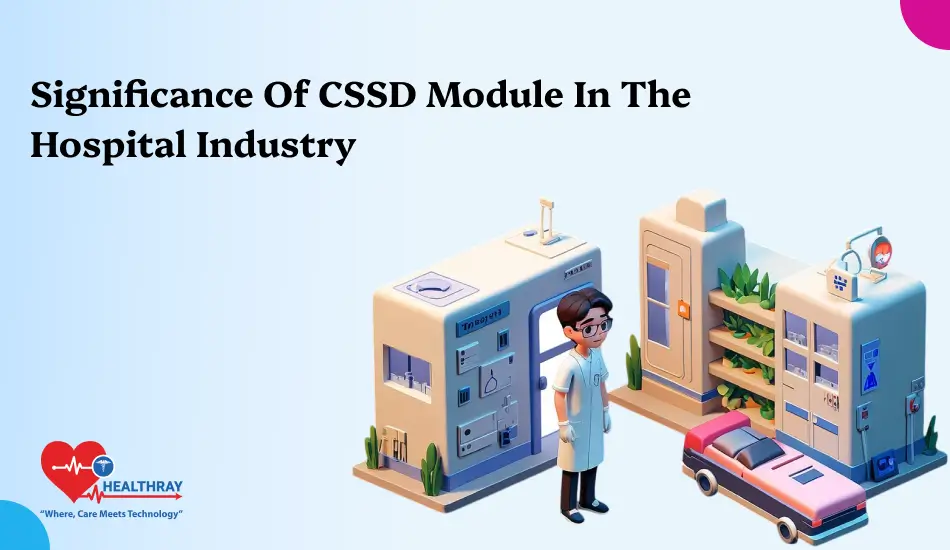AI-powered EMR software is changing how healthcare operates. For years, doctors and administrators have dealt with time-consuming paperwork and fragmented systems. These inefficiencies take focus away from patient care. With AI in the mix, EMR systems now automate routine tasks, assist with clinical decisions, and offer personalized insights that improve treatment outcomes.
This post will explore how AI transforms traditional EMRs into dynamic tools. You’ll learn about the benefits, challenges, and real-world applications shaping the future of healthcare. Whether you’re a doctor seeking better efficiency, an administrator managing hospital workflows, or a developer building healthcare solutions, there’s something here for you.
Understanding AI-Powered EMR Systems
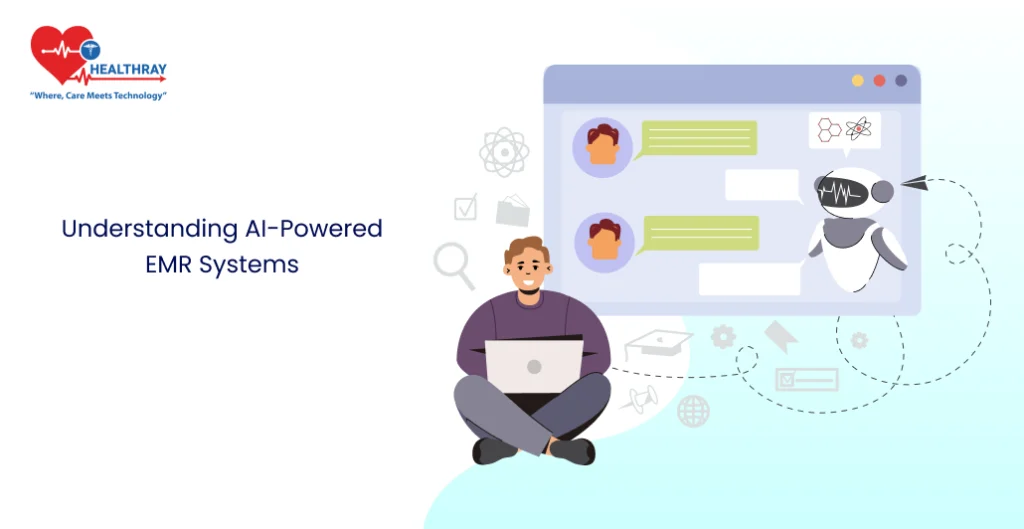
AI-powered EMR software combines traditional electronic medical records with advanced artificial intelligence to streamline workflows and improve patient care. At their core, these systems act as digital repositories for patient data, but AI takes them a step further by analyzing information, identifying patterns, and delivering actionable insights.
Key Features of AI-Powered EMRs
- Predictive Analytics: These systems analyze historical patient data to predict outcomes like disease progression or potential complications.
- Natural Language Processing (NLP): AI can process and understand free-text notes written by doctors, turning them into structured, searchable data.
- Automated Workflows: From appointment scheduling to billing, AI reduces manual intervention, saving time and minimizing errors.
- Real-Time Decision Support: During consultations, these systems can suggest diagnoses, recommend treatments, or flag potential drug interactions.
How AI Enhances Traditional EMR Functionalities
Traditional EMRs focus on data storage and retrieval. While useful, they often require manual input and lack analytical capabilities. AI changes this by:
- Automating repetitive tasks like data entry and coding.
- Providing personalized treatment suggestions based on patient history and current health status.
- Offering population health insights, helping healthcare providers spot trends across communities.
Why It Matters
Doctors no longer have to sift through piles of data or rely solely on memory for treatment options. For administrators, these systems boost operational efficiency and enhance compliance. Software developers in healthcare see opportunities to innovate by integrating AI features into existing platforms.
Benefits of AI-Powered EMR Systems
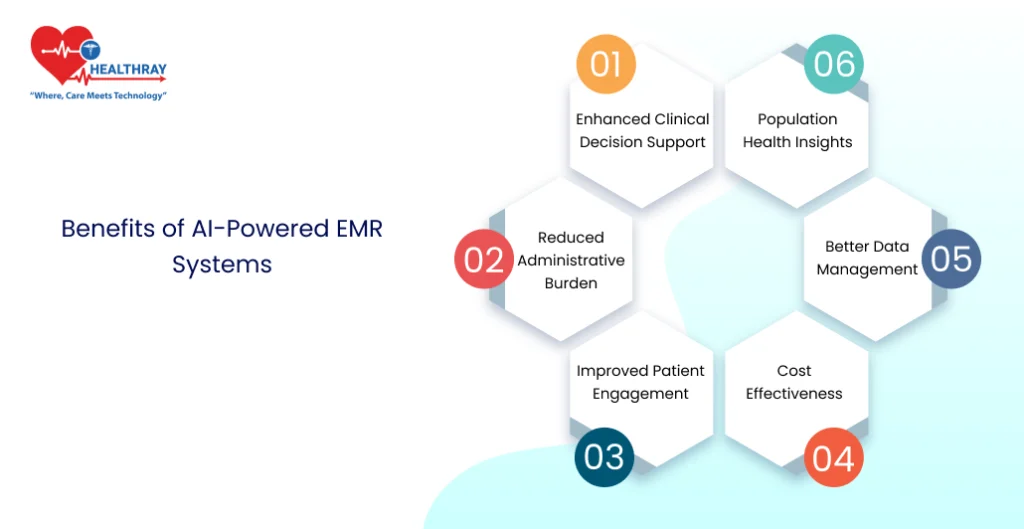
AI-powered EMR systems bring a range of benefits that improve efficiency, accuracy, and overall healthcare delivery. Let’s dive into how these systems positively impact doctors, administrators, and patients.
Enhanced Clinical Decision Support
AI-powered EMRs analyze patient data to provide real-time insights. These insights help doctors make informed decisions during consultations. For instance, AI can recommend diagnostic tests, flag potential drug interactions, or suggest tailored treatment plans. This reduces the chances of errors and enhances patient safety.
Reduced Administrative Burden
One of the most significant advantages is automating routine tasks. Tasks like data entry, appointment scheduling, and medical coding are streamlined. This gives healthcare professionals more time to focus on patient care instead of paperwork.
Improved Patient Engagement
Patients benefit from features like personalized health recommendations, automated reminders for medications or check-ups, and access to their health records. Engaging patients in their healthcare journey leads to better compliance and improved outcomes.
Cost-Effectiveness
By minimizing errors, reducing redundant testing, and optimizing workflows, AI-powered EMRs can save healthcare facilities significant costs. While the initial investment might seem high, the long-term financial benefits often outweigh the upfront expenses.
Better Data Management
AI organizes vast amounts of patient data efficiently. It can categorize information, highlight critical trends, and create detailed reports. This is particularly helpful for healthcare administrators who rely on data for decision-making and compliance reporting.
Population Health Insights
AI-powered EMRs analyze data from multiple patients to identify trends, such as an outbreak of a disease or the effectiveness of a particular treatment protocol. These insights help public health officials and healthcare organizations respond proactively.
Challenges and Considerations
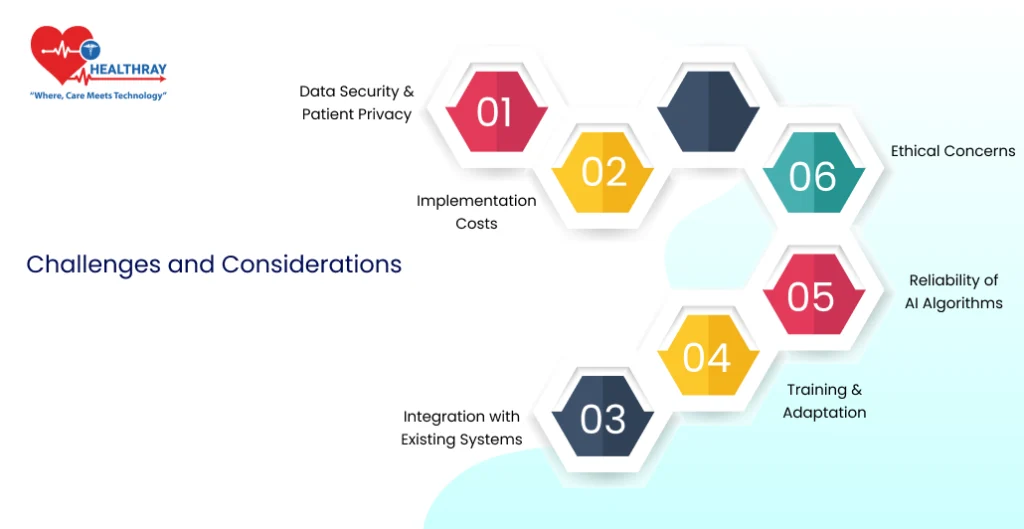
While AI-powered EMR systems offer transformative benefits, they also come with challenges that healthcare professionals, administrators, and developers must address. Let’s look at the main hurdles and considerations for implementing these advanced systems.
Data Security and Patient Privacy
AI-powered EMRs handle sensitive patient information, making them a prime target for cyberattacks. Ensuring robust encryption, secure access controls, and compliance with regulations like HIPAA is critical. Data breaches can damage trust and lead to costly legal consequences.
Implementation Costs
Adopting AI-powered systems often involves significant upfront investment in software, hardware, and training. Smaller clinics or underfunded healthcare facilities might find these costs prohibitive. Evaluating return on investment and exploring funding options are key steps.
Integration with Existing Systems
Many healthcare providers already use legacy systems. Integrating AI-powered EMRs with these older platforms can be technically challenging and time-consuming. Ensuring compatibility and minimizing disruption during the transition are essential.
Training and Adaptation
AI-powered systems require staff to learn new workflows and technologies. For doctors, this means time spent away from patients to attend training sessions. Resistance to change among staff can also slow adoption.
Reliability of AI Algorithms
AI models depend on the quality and quantity of data they are trained on. Poor data can lead to incorrect predictions or biased outcomes. Regular updates and validation of these algorithms are necessary to maintain accuracy and fairness.
Ethical Concerns
AI raises ethical questions, such as:
- Who is responsible if an AI-powered EMR suggests an incorrect treatment?
- How should the system handle sensitive information like mental health or genetic data?
Case Studies and Real-World Applications
AI-powered EMR systems have already demonstrated their value in various healthcare settings. Let’s explore real-world examples where these systems have transformed medical practices and improved outcomes.
Optimizing Patient Care in Hospitals
A major hospital chain implemented AI-powered EMR software to enhance its ICU operations. The system monitored patient vitals, analyzed trends, and alerted doctors to potential complications, such as sepsis. As a result:
- Early detection of complications improved patient survival rates by 15%.
- Nurses and doctors spent 25% less time on manual data entry, focusing more on patient care.
Reducing No-Show Rates in Clinics
A mid-sized healthcare facility used an AI-powered EMR to tackle appointment no-shows. The system sent automated reminders and adjusted scheduling dynamically based on patient behavior patterns. Over six months:
- No-show rates dropped by 20%.
- Clinic revenue increased due to better utilization of appointment slots.
Supporting Chronic Disease Management
An outpatient clinic specializing in diabetes care adopted an AI-EMR system that tracked patients’ blood sugar levels, dietary habits, and medication adherence. The system provided personalized recommendations and flagged high-risk patients for follow-ups. Outcomes included:
- A 10% improvement in patient HbA1c levels within a year.
- Increased patient satisfaction due to tailored care plans.
Enhancing Medical Research
A healthcare research institute integrated AI-Electronic Medical Record Systems technology to analyze anonymized patient records. This led to:
- Faster identification of clinical trial candidates.
- Discovery of new correlations between patient demographics and disease outcomes.
Streamlining Billing Processes
A multi-specialty practice used AI-powered EMRs to automate coding and billing processes. Errors in claims submissions dropped significantly, resulting in:
- A 30% reduction in claim rejections.
- Faster reimbursement cycles, improving cash flow.
Future Trends in AI and EMR Integration
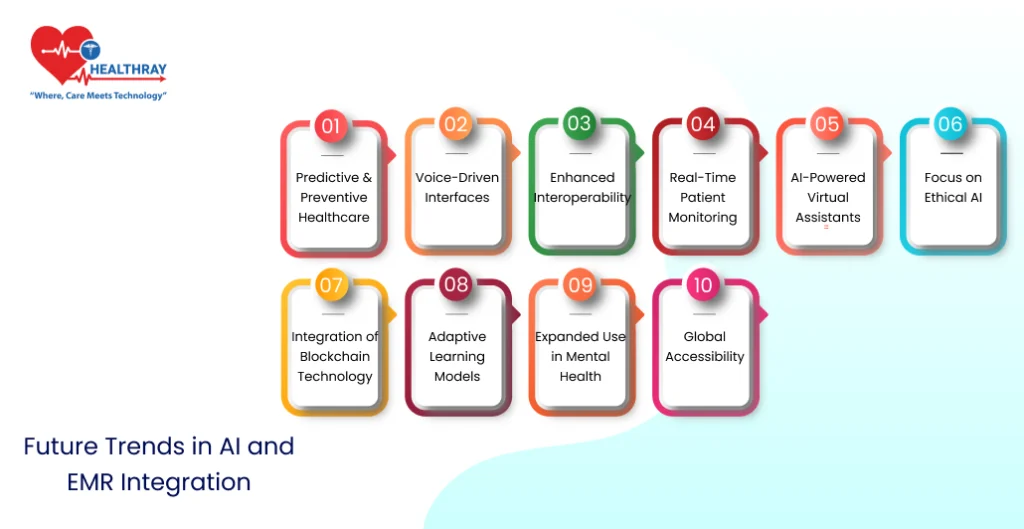
AI-powered EMR systems continue to evolve, integrating advanced technologies and reshaping healthcare delivery. Here’s a look at the key trends defining the future of these systems.
Predictive and Preventive Healthcare
AI-powered EMRs are increasingly focusing on predicting health risks and preventing diseases. Future systems will integrate:
- Genomic Data: Analyzing genetic predispositions to recommend personalized preventive measures.
- Lifestyle Tracking: Using wearable devices and EMR data to identify patterns that may lead to chronic diseases.
Voice-Driven Interfaces
Voice-enabled AI is making interactions with EMRs more intuitive. Doctors can dictate notes or queries, and the system can process and respond in real time. This minimizes manual input and speeds up workflows.
Enhanced Interoperability
Future AI-EMRs will prioritize seamless communication between systems. Interoperability will ensure that data flows effortlessly across healthcare providers, improving coordination and reducing redundancies.
Real-Time Patient Monitoring
EMRs are increasingly integrating with IoT devices for real-time monitoring. For example:
- Wearables can send live updates on vitals to the EMR.
- AI algorithms can alert doctors to emergencies, such as heart arrhythmias or drastic blood pressure changes.
AI-Powered Virtual Assistants
Future EMRs will feature virtual assistants that:
- Guide doctors through complex procedures.
- Automate repetitive documentation tasks.
- Provide actionable insights during consultations.
Focus on Ethical AI
Developers and healthcare providers will emphasize building ethical AI systems to:
- Eliminate biases in data and predictions.
- Ensure transparency in how AI algorithms make decisions.
- Protect sensitive patient data from misuse.
Integration of Blockchain Technology
To enhance data security and transparency, blockchain will likely be integrated into EMRs. This will:
- Protect patient data from tampering.
- Provide an auditable trail of data access and modifications.
Adaptive Learning Models
Future AI in EMRs will continuously learn from new data to improve accuracy and efficiency. These adaptive systems will evolve alongside the healthcare landscape, staying relevant and effective.
Expanded Use in Mental Health
AI-powered EMRs are expected to focus more on mental health, integrating with telemedicine platforms to:
- Provide real-time emotional health tracking.
- Recommend therapies or connect patients with mental health professionals.
Global Accessibility
Advancements in AI-EMR technology will make these systems more accessible to under-resourced areas. Scaled-down, cloud-based versions will allow clinics in remote locations to benefit from advanced features.
What’s Next?
The integration of cutting-edge technologies with AI-powered EMRs will not only redefine healthcare delivery but also open up new possibilities for patient care and medical research.
Conclusion
AI-powered EMR systems are transforming healthcare by making processes faster, smarter, and more patient-focused. For doctors, these systems mean spending more time with patients and less time on paperwork. Healthcare administrators benefit from streamlined workflows, while software developers have an exciting opportunity to innovate in this rapidly evolving field.
Despite challenges like implementation costs and data privacy concerns, the advantages far outweigh the hurdles. From improving clinical decisions to enabling real-time patient monitoring, these systems are setting new standards for efficiency and care quality.As AI technology continues to advance, the possibilities for integration into Hospital Management Systems are limitless. The future holds exciting innovations, such as adaptive learning models, blockchain security, and predictive healthcare solutions. These advancements promise a future where healthcare is not only more efficient but also more accessible and equitable.
